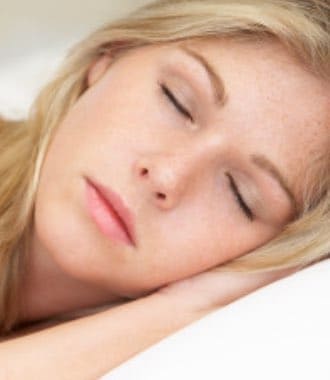Health
Can you get female hair loss from stress?
By Anna H. Chacon, MD, Fellow of the American Academy of Dermatology Nov 08, 2024 • 5 min
Hair loss in women is a distressing problem with a number of potential causes. Understanding the connection between stress and hair loss or thinning hair in women can help you begin to determine what's behind your symptoms and seek treatment from your healthcare provider.
Does stress cause hair loss?
Physical and emotional stress can cause temporary hair loss in women and men. Some examples of stressors that may trigger hair loss or excessive hair shedding include:
- Death of a loved one
- Divorce
- Loss of a job or severe stress at work
- Rapid weight loss
- High fever
- Childbirth
- Major surgery
- Severe infections
What is telogen effluvium?
Excessive hair shedding that occurs as a response to a sudden trigger, such as physical or emotional stress, is called telogen effluvium. This name relates to why stress-related hair loss can happen. Hairs grow from openings in the scalp called follicles. Each hair goes through three stages of growth:
- Anagen: Active growth stage
- Catagen: Transitional phase where changes take place in the root and hair no longer grows
- Telogen: Resting phase in which final changes take place that allow hair to fall out and the cycle to begin again
Although scientists don't fully understand why, stress can alter the natural growth pattern. Telogen hairs may fall out at a faster rate and the anagen period may shorten, causing hairs to fall out more frequently. With this condition, it’s typical that less than 50% of hair on the scalp is lost.
In most cases, healthcare providers take a wait-and-see approach with telogen effluvium, as hair loss often stops on its own and regrows within months after the stressful event or cause is resolved.
Symptoms of stress hair loss
Telogen effluvium is typically characterized by sudden hair loss in women. Those who develop this condition begin to notice hair falling out in clumps or even handfuls. Larger amounts of hair may fall out while shampooing, combing or brushing. The shed hairs usually have a club-shaped root at the bottom. You can sometimes see it with the naked eye, but a microscope may be necessary to spot this feature.
Symptoms usually begin around two to three months after the physical or emotional stress begins. Hair loss tends to occur all over the scalp, following no particular pattern.
Does hair grow back after loss due to stress?
For most women, telogen effluvium doesn't lead to permanent hair loss. Once the source of stress is no longer a factor, hair usually begins to regrow within six to eight months. As a result, dealing with the cause of stress is an important part of treatment. In some cases, women may need to seek help from a mental health professional to learn how to cope with and manage ongoing emotional stress.
Female pattern baldness vs. losing hair due to stress
Although stress can cause female hair loss, thinning hair in women due to stress is not the same as female pattern baldness. Also known as androgenic alopecia, female pattern baldness is a hereditary condition that is most commonly seen after menopause. When hormone levels change after menopause or due to a medical condition, it may trigger hair thinning and excessive shedding.
Female pattern baldness usually develops in a noticeable pattern. It starts in a straight line in the middle of the head, running from the forehead to the back of the scalp. Then, it progresses outward. In most cases, hair loss from female pattern baldness is gradual. Hair loss due to telogen effluvium is usually much more sudden and normally happens all over the head rather than in a specific pattern.
What to do for stress-related hair loss
Stress hair loss often resolves on its own, but there may be ways that you can minimize shedding and support growth. Your healthcare provider can discuss potential treatment options with you. Sudden hair loss in women also can sometimes occur due to medical conditions or nutrient deficiencies. Your healthcare provider can run the diagnostic tests needed to determine if your symptoms are actually due to stress or something else.
Updated November 2024.
Sources:
- https://medlineplus.gov/genetics/condition/androgenetic-alopecia/#inheritance
- https://www.health.harvard.edu/staying-healthy/treating-female-pattern-hair-loss
- https://www.aad.org/public/diseases/hair-loss/types/female-pattern
- https://www.aad.org/public/diseases/hair-loss/causes/18-causes
- https://www.aocd.org/page/telogeneffluviumha
- https://www.health.harvard.edu/a_to_z/hair-loss-a-to-z
- https://www.aad.org/public/diseases/hair-loss/insider/shedding
- https://www.uptodate.com/contents/telogen-effluvium


